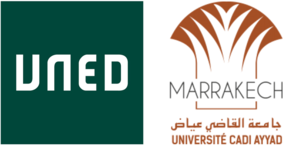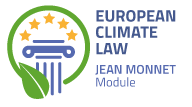The project falls within the competitive call for grants for the implementation of University Cooperation for Development Projects 2025, promoted as part of UNED’s Institutional Strengthening Plan.
Its objective is to foster inter-university cooperation between UNED and the University of Cadi (Marrakech) in the field of sustainability. To this end, a team of ten people from each university has been formed, including three associate vice-rectors linked to the topic, as well as specialists with extensive experience in sustainability and international cooperation.
The main activities consist of two training courses — one in Marrakech in November 2025 and another in Madrid in March 2026 — which will address the key elements that a sustainability policy should include in its various dimensions: management, infrastructure, teaching, research, knowledge transfer, and outreach.
These courses will be attended by members of the entire university community (faculty, administrative and service staff, and students), and the working groups will be joint, with contributions from both UNED and the local partner. This will promote two-way learning and mutual exchange of best practices. The conclusions from both courses will be compiled in a joint document.
It is expected that the project, in addition to consolidating the Sustainability Policy and the SDGs at the University of Cadi, will generate synergies that strengthen UNED’s sustainability policy through a process of bidirectional cooperation.


